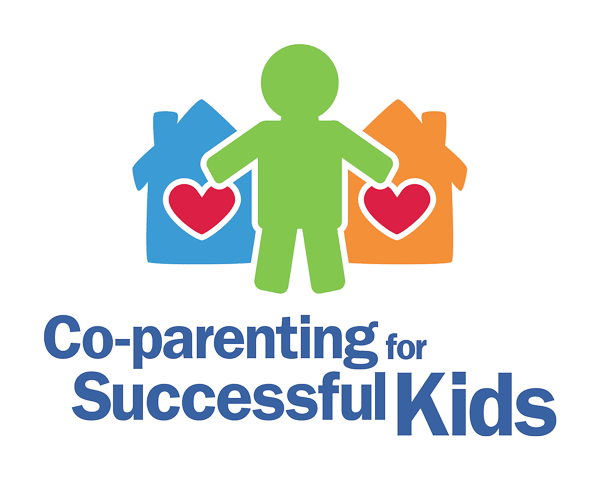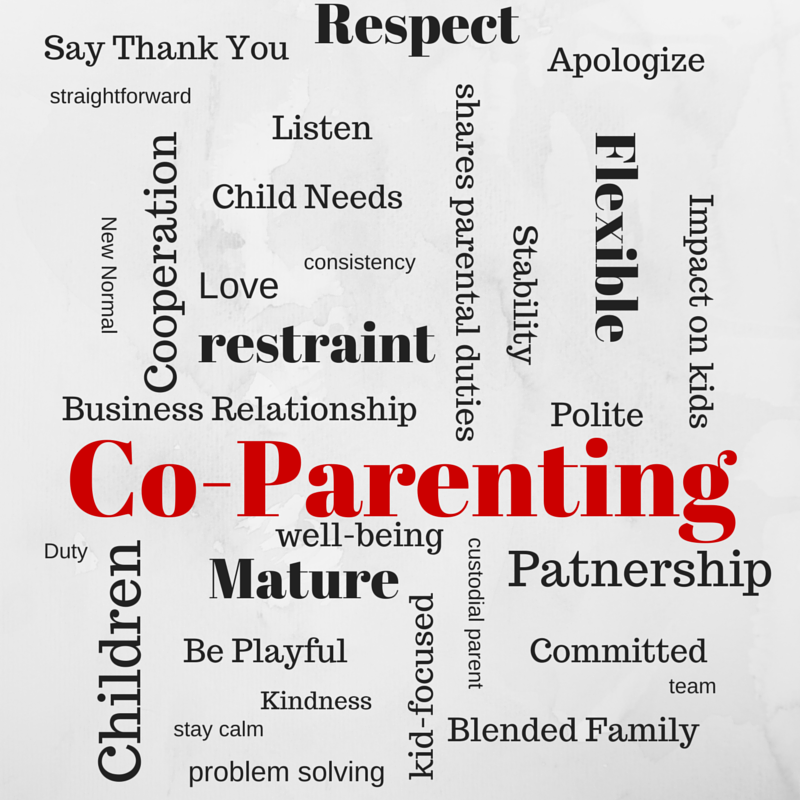Navigating co-parenting after a separation or divorce can be tough. Co-parenting classes offer guidance and support for parents in this situation.
Co-parenting classes can be a lifeline for parents who are no longer together but want to raise their children together effectively. These classes teach vital skills like communication, conflict resolution, and child-focused strategies. By attending these classes, parents can learn to work together despite their differences.
This cooperation helps create a stable, loving environment for their children. Co-parenting classes provide the tools and knowledge needed to manage the complexities of shared parenting. They offer a structured approach to deal with the challenges, ensuring the well-being of the children involved.

Introduction To Co-parenting
Co-parenting is a collaborative approach to raising children after separation or divorce. It focuses on the well-being of the child. Both parents share responsibilities and make decisions together. Co-parenting classes help parents learn effective communication and problem-solving skills. These classes provide tools to create a stable environment for the child. They teach parents how to work together despite personal differences.
Benefits Of Co-parenting
Co-parenting has many benefits for the child and parents. Children feel more secure and loved when parents cooperate. They experience less stress and anxiety. Co-parenting ensures that children maintain healthy relationships with both parents. Parents can share responsibilities, reducing individual stress. It promotes better problem-solving and decision-making. Co-parenting encourages mutual respect and understanding between parents.
Challenges In Co-parenting
Co-parenting can present many challenges. Communication may be difficult if there is lingering conflict. Parents may have different parenting styles or values. Scheduling and logistics can be complex. Emotional stress can affect decision-making. It requires patience and compromise. Consistency between households is crucial but hard to maintain. Parents must put personal feelings aside for the child’s benefit.

Essential Co-parenting Skills
Co-parenting after a separation can be challenging. Developing essential co-parenting skills can ease the journey. These skills help parents work together in raising their children. They ensure a stable and loving environment for the kids. This section will cover two crucial skills: Effective Communication and Conflict Resolution.
Effective Communication
Clear communication is key in co-parenting. It helps parents share important information about their children. This includes updates on school, health, and activities. It’s important to listen actively. This means giving full attention to the other parent. Avoid interrupting. Use simple and respectful language. Also, communicate regularly. Set up a schedule to discuss important matters. This keeps both parents on the same page.
Conflict Resolution
Disagreements can happen in co-parenting. It’s important to handle them calmly. First, identify the issue. Focus on the problem, not the person. Use “I” statements to express feelings. For example, say “I feel worried when…”. This avoids blame. Listen to the other parent’s perspective. Find a middle ground. Compromise is often necessary. If conflicts persist, consider mediation. A neutral third party can help find solutions.
Creating A Co-parenting Plan
Creating a co-parenting plan is essential for divorced or separated parents. It ensures the well-being of their children and smooth communication between parents. A well-thought-out plan can reduce conflicts and provide stability for the kids. Here are key elements to focus on while creating a co-parenting plan.
Setting Boundaries
Setting boundaries is crucial for a successful co-parenting relationship. It helps each parent understand their role and responsibilities. Clear boundaries prevent misunderstandings and reduce conflicts.
- Define each parent’s role and responsibilities.
- Agree on rules for communication.
- Set limits on discussing personal issues.
Establishing Routines
Children thrive on routine and stability. Establishing routines helps kids feel secure and know what to expect. Consistent routines between both households are beneficial.
| Task | Parent A | Parent B |
|---|---|---|
| Morning Routine | Prepare breakfast | Help with dressing |
| Homework Time | Assist with assignments | Check completed work |
| Bedtime Routine | Read a story | Tuck in bed |
Routines should be consistent and predictable. This helps kids adjust to the new family structure. Consistency in routines also reduces stress for both parents and children.
Legal Aspects Of Co-parenting
Co-parenting can be complex. Understanding the legal aspects is crucial. Legal knowledge ensures better compliance with laws and protects everyone’s rights. It also helps in creating a fair and balanced parenting plan. Knowing these legal elements can ease the co-parenting journey.
Custody Agreements
Custody agreements outline each parent’s rights. They define who makes decisions about the child’s welfare. The agreements also state where the child will live. Custody can be joint or sole. Joint custody means both parents share responsibilities. Sole custody grants one parent full control. Courts prefer arrangements in the child’s best interest.
Child Support
Child support ensures financial stability for the child. It covers basic needs like food, shelter, and education. The non-custodial parent usually pays child support. The amount depends on income and the child’s needs. Courts enforce child support to guarantee the child’s well-being. Both parents must comply with the support orders.
Co-parenting And Child Development
Co-parenting plays a crucial role in a child’s development. It involves both parents working together to raise their child, despite being separated or divorced. This collaboration impacts various aspects of a child’s growth.
Emotional Well-being
A strong co-parenting relationship supports a child’s emotional health. Children feel more secure when both parents are involved in their lives. They experience less stress and anxiety. Consistent communication between parents ensures a stable environment. This stability helps children manage their emotions better.
Educational Support
Co-parenting positively influences a child’s education. Both parents can share responsibilities and support school activities. They can attend parent-teacher meetings together. This united front helps children value their education. It also encourages them to perform better academically. Regular involvement from both parents shows the child that education is important.

Dealing With New Partners
Co-parenting after separation or divorce can be challenging. Introducing new partners into the mix adds another layer of complexity. It’s crucial to handle this situation thoughtfully and respectfully. This section will guide you on managing new partners in co-parenting to maintain a healthy environment for your children.
Introducing New Partners
Introducing a new partner to your children requires care. It is important to ensure your child feels secure and loved. Here are some tips:
- Communicate with your co-parent. Inform them about your new relationship.
- Take your time. Do not rush the introduction. Wait until the relationship is stable.
- Prepare your child. Talk to them about the new partner in advance.
- Choose a neutral location. Introduce your new partner in a comfortable setting.
- Be patient. Give your child time to adjust to the new person in their life.
Blended Family Dynamics
Blending families can be complex. Understanding family dynamics and addressing challenges early can help. Consider the following:
| Aspect | Tips |
|---|---|
| Communication | Maintain open and honest communication with all family members. |
| Respect | Respect each other’s roles and boundaries. |
| Consistency | Keep routines and rules consistent across households. |
| Support | Provide emotional support to your children during transitions. |
By focusing on these areas, you can create a more harmonious blended family. Remember to always prioritize your child’s well-being.
Co-parenting During Special Occasions
Special occasions can be tricky for co-parents. Holidays, birthdays, and school events bring joy, but also challenges. How can both parents share these moments? Co-parenting classes offer helpful strategies. Learn to navigate these special times with grace.
Holidays And Birthdays
Holidays and birthdays are significant for children. They look forward to them all year. Both parents want to be part of the celebration. This can create tension. Co-parenting classes suggest making a detailed plan. Decide early who will host each event. Consider alternating holidays each year. This ensures fair time with the child. Communication is key. Discuss gift-giving to avoid duplicates. Share costs if possible. Celebrate together if both parents agree. Your child’s happiness comes first.
School Events
School events also require cooperation. These include parent-teacher meetings, sports days, and school plays. Both parents should attend if possible. Your child will feel supported. Agree on who will handle communication with teachers. Share information about school activities. This avoids misunderstandings. Take turns attending events if schedules clash. Always keep the focus on your child’s well-being. Co-parenting classes can provide useful tips. They help you manage these situations smoothly.
Resources For Co-parents
Co-parenting can be challenging, but finding the right resources can make a big difference. Whether you are new to co-parenting or need fresh ideas, there are many tools available. Below are some valuable resources for co-parents.
Support Groups
Joining a support group can provide emotional backing and practical advice. These groups allow you to share experiences and learn from others in similar situations. You can find both local and online support groups. Many co-parents find comfort in knowing they are not alone.
Here are some benefits of joining a support group:
- Shared experiences
- Emotional support
- Practical advice
- New friendships
Online Courses
Online courses offer flexibility and convenience for busy co-parents. These courses cover various topics, from effective communication to conflict resolution. You can learn at your own pace and revisit material as needed. Many courses also include interactive elements, such as quizzes and forums.
Consider the following features when selecting an online course:
| Feature | Benefit |
|---|---|
| Flexibility | Learn at your own pace |
| Comprehensive Topics | Cover all aspects of co-parenting |
| Interactive Elements | Engage with the material |
Online courses can be a valuable resource for improving your co-parenting skills.
Frequently Asked Questions
What Are Co-parenting Classes?
Co-parenting classes teach divorced or separated parents how to work together for their child’s benefit. They cover communication, conflict resolution, and parenting strategies.
How Do Co-parenting Classes Work?
Co-parenting classes typically involve group sessions, online modules, or one-on-one coaching. Parents learn skills through discussions, exercises, and practical advice.
Are Co-parenting Classes Mandatory?
In some jurisdictions, co-parenting classes are required by the court. This is often part of the divorce or custody process.
What Topics Do Co-parenting Classes Cover?
Co-parenting classes cover effective communication, conflict resolution, and parenting techniques. They also address children’s emotional needs and cooperative decision-making.
Conclusion
Co-parenting classes help parents work together for their children’s well-being. They teach effective communication and problem-solving. Such skills are crucial for a harmonious family environment. Attending these classes can reduce conflicts and build stronger relationships. Children benefit from seeing their parents cooperate.
It creates a stable and loving atmosphere for growth. Consider joining a co-parenting class to enhance your parenting journey. These classes offer valuable insights and support. Your family will thank you for making this positive step.

